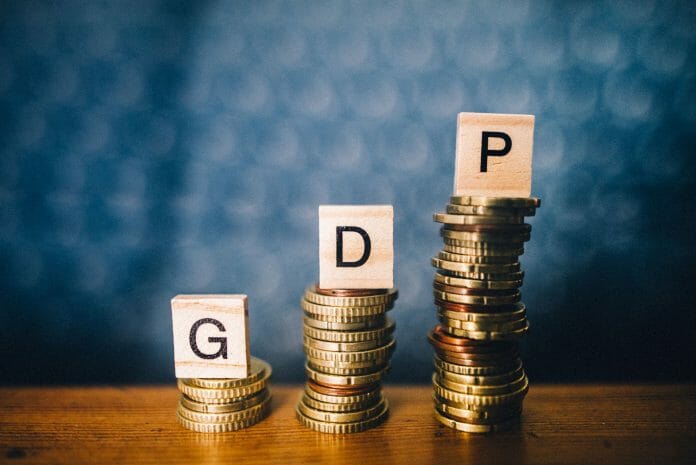Fitch Solutions has reported that the 2021 Gross Domestic Product (GDP) growth forecast has been revised down to 10.0 percent from 11.5 percent previously.
This is in regards to the downside risks posed by the re-imposition of lockdowns in nearly half the country. It is very possible that lockout steps will last longer than the initial two weeks, the report states. Notably, in Q2Y20, the previous lockdown lasted close to a quarter and was enforced after an outbreak that was much milder than the current third wave.
The government debt ceiling is also set to be increased again following a similar move in August 2020 to increase it to 60 percent of GDP from 55 percent earlier, but the stimulus is likely to remain calculated.
The fourth wave of MCO measures announced by the Prime Minister is similar to those imposed in Q220 that led to the record 17.1 percent year-on-year contraction that quarter.
“The re-imposition of lockdown measures is in line with our view since early November 2020, when we cited the possibility of a wider lockdown as a downside risk to our interest rate view in 2021.
We will be revisiting our rate forecast of 2.25 percent, a 50bps hike from the current 1.75 percent, in the coming weeks – the weaker economic performance and fiscal constraints mean the monetary policy will likely have to remain loose for longer to support the economy,” the report read.
Subsequently, the study also cited it as a primary downside risk to the 2021 real GDP forecast and accordingly revised the forecast down to 10.0 percent from 11.5 percent previously to account for the realisation of this risk.
Muted private consumption would be the key force contributing to a slower recovery, as jobs and salaries are likely to come under extreme pressure again.
This time especially, as there is less scope for fiscal support, given that government finances are already strained and close to the raised debt limit of 60 percent of GDP. Accordingly, private consumption is expected to grow by 6.0 percent, from 8.5 percent previously.
The report further cited that “most importantly, we flag serious downside risks even to our revised growth forecast of 10.0 percent and we will likely be revisiting it in the coming weeks following the release of Q4Y20 real GDP data and as the timeline regarding the lockdown measures becomes clearer.
To be clear, we do not believe that the lockdown will only last two weeks and end on January 26. The outbreak is far worse than the last one in 2020 that triggered the previous round of lockdowns and that lasted for close to a quarter.
If indeed, the government hastens to re-open the economy in two weeks and the outbreak has (as is likely) not been brought under control then the problem will likely only be postponed and worsened. That said, we will hold on to further revisions until we have a better idea of how long these measures will last”.
\Speaking on the fiscal side, the government is expected to once again raise the debt limit and see downside risks to the current deficit forecast for 2021 of 5.5 percent of GDP.
Previously it was stated that the debt limit would likely remain at 60 percent of GDP (government debt stands at 61 percent of GDP as of Q320) but only in the absence of another serious negative shock to the economy and that contingency is now in play.
That said, any stimulus measures that will be announced in the coming weeks are unlikely to top what was announced in 2021 given the constraints the government faces, which was already small compared to what other economies fielded such as Singapore and Hong Kong.
Coupled with the compromised economic outlook, the high public debt load is likely to have a negative impact on investor sentiment towards Malaysia and could raise its borrowing costs further.
Moreover, King Abdullah of Pahang has approved the government’s move to declare a state of emergency, citing the need for those powers to fight the third wave of infections. The emergency will last until August 1, allowing the government to pass laws without the approval of Parliament.
The state of emergency that will last until August 1, or earlier if the outbreak is brought under control, presents mixed prospects in our view, and we will observe how the government exercises its emergency powers over the coming weeks before considering any changes to our short-term political risk index score, which currently stands at 66.7 out of a best possible score of 100.
While the government’s ability to pass laws without the consent of Parliament is a plus for policymaking over that period, the lack of parliamentary oversight is liable to result in an erosion of the government’s already thin legitimacy, having come to power in a backroom coup in Q120.
However, the report concluded that the risks are especially pronounced if the government takes the opportunity to push through unpopular legislation that would otherwise not have been passed by Parliament.
Segments of the population could also question the need for a state of emergency, especially after the previous attempt to declare one in October 2020 was rejected by the King and could be perceived as a tactic to evade questions around the thin majority Muhyiddin’s government has in Parliament.









